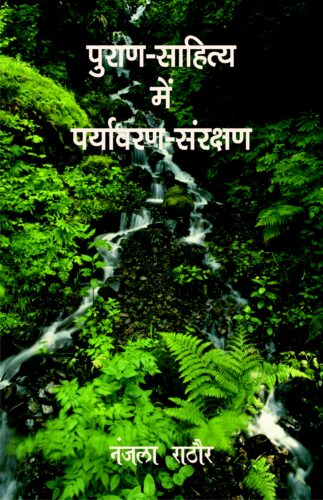Showing 25–28 of 28 results

The book presents an in-depth study of various measures and provisions adopted to redress the problems of the tribals and for bringing them to the national mainstream. It provides extensive details of the ethnographic features of the entire primitive tribes with realistic description of their pathetic life.
Tribal people living in the remote areas of the territory forms an indispensable part of the Indian population. More than 250 different tribal groups inhabit in India, of which 62 tribal groups live in Orissa, each varying in culture, language, economic life and level of literacy. The thirteen tribal groups, namely Birhor, Bondo, Didayi, Dongria-Khond, Juangs, Kharias, Kutia Khond, Lanjia Saoras, Lodhas, Mankidias, Paudi Bhuinyas, Soura and Chuktia Bhunjia, having pre-agricultural level of technology and extremely low level of literacy have been recognized as Primitive Tribesû of Orissa. These tribal groups remain confined to their own small world and a probe into its history clearly shows that after a few generations the past turns into mythology. It was realized only after the Independence that to have a well-developed and prosperous nation, the needs and problems of the tribals were to be addressed and their welfare to be taken care thereof. The book presents an in-depth study of the various measures and provisions adopted, schemes introduced and plans implemented, since the Fifth Five-Year Plan, to redress the problems of the tribals; and apprises the readers about the on-going attempts in bringing them to the national mainstream through the 13 Micro Projects. Besides, the book presents an extensive detail of the ethnographic features of the entire Primitive Tribes with particular reference to their economic activities, social sanctions and varied problems faced by them. The realistic description of their pathetic life, deprived of all modern facilities, is highly touching and makes one wonder, do such people really exist in the 21st Century? The book will universally appeal to all readers and is highly recommended for the scholars of sociology and anthropology in particular.

The book presents an in-depth study of various measures and provisions adopted to redress the problems of the tribals and for bringing them to the national mainstream. It provides extensive details of the ethnographic features of the entire primitive tribes with realistic description of their pathetic life.
Tribal people living in the remote areas of the territory forms an indispensable part of the Indian population. More than 250 different tribal groups inhabit in India, of which 62 tribal groups live in Orissa, each varying in culture, language, economic life and level of literacy. The thirteen tribal groups, namely Birhor, Bondo, Didayi, Dongria-Khond, Juangs, Kharias, Kutia Khond, Lanjia Saoras, Lodhas, Mankidias, Paudi Bhuinyas, Soura and Chuktia Bhunjia, having pre-agricultural level of technology and extremely low level of literacy have been recognized as Primitive Tribesû of Orissa. These tribal groups remain confined to their own small world and a probe into its history clearly shows that after a few generations the past turns into mythology. It was realized only after the Independence that to have a well-developed and prosperous nation, the needs and problems of the tribals were to be addressed and their welfare to be taken care thereof. The book presents an in-depth study of the various measures and provisions adopted, schemes introduced and plans implemented, since the Fifth Five-Year Plan, to redress the problems of the tribals; and apprises the readers about the on-going attempts in bringing them to the national mainstream through the 13 Micro Projects. Besides, the book presents an extensive detail of the ethnographic features of the entire Primitive Tribes with particular reference to their economic activities, social sanctions and varied problems faced by them. The realistic description of their pathetic life, deprived of all modern facilities, is highly touching and makes one wonder, do such people really exist in the 21st Century? The book will universally appeal to all readers and is highly recommended for the scholars of sociology and anthropology in particular.

How important was environment in the ancient times as depicted in the Puranic literatures has been discussed in detail in this book.
How important was environment in the ancient times as depicted in the Puranic literatures has been discussed in detail in this book.

This volume is an endeavour to present the major ecological concepts and processes which may help in refashioning the framework of sociology. It is also an attempt to deal with a comparative social ecology on which rest the foundations of comparative economics and sociology.
This book of Radhakamal Mukerjee, with an introduction of Klaus Seeland, is an authoritative study on social ecology. Social ecology is different in scope from human ecology. Since there is whole gamut of confusion about the term social ecology and its relation with sociology, here is an attempt to detail the essential principles of social ecology and its scientific fruitfulness for sociology.
This volume is an endeavour to present the major ecological concepts and processes which may help in refashioning the framework of sociology. It is also an attempt to deal with a comparative social ecology on which rest the foundations of comparative economics and sociology. Social ecology studies the place, occupation and time relations of persons and groups in their processes of competition, co-operation, conflict, accommodation and succession. It is a vast and virgin field orienting social phenomena on the basis of the give-and-take between life, mind and region.
This book is so comprehensive that it should contribute to a scientific classification of socialecological concepts and to the development of a methodology according to which social economy may form the basis of a new functional and quantitative sociology. Therefore, it should be a referral book for sociology students, teachers and researchers.
| There are no products |